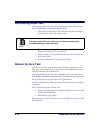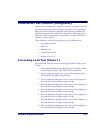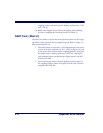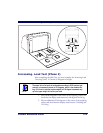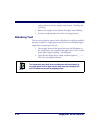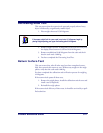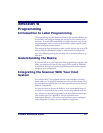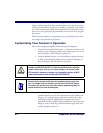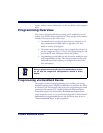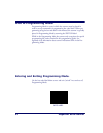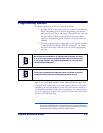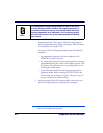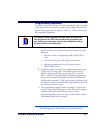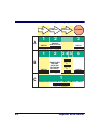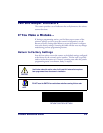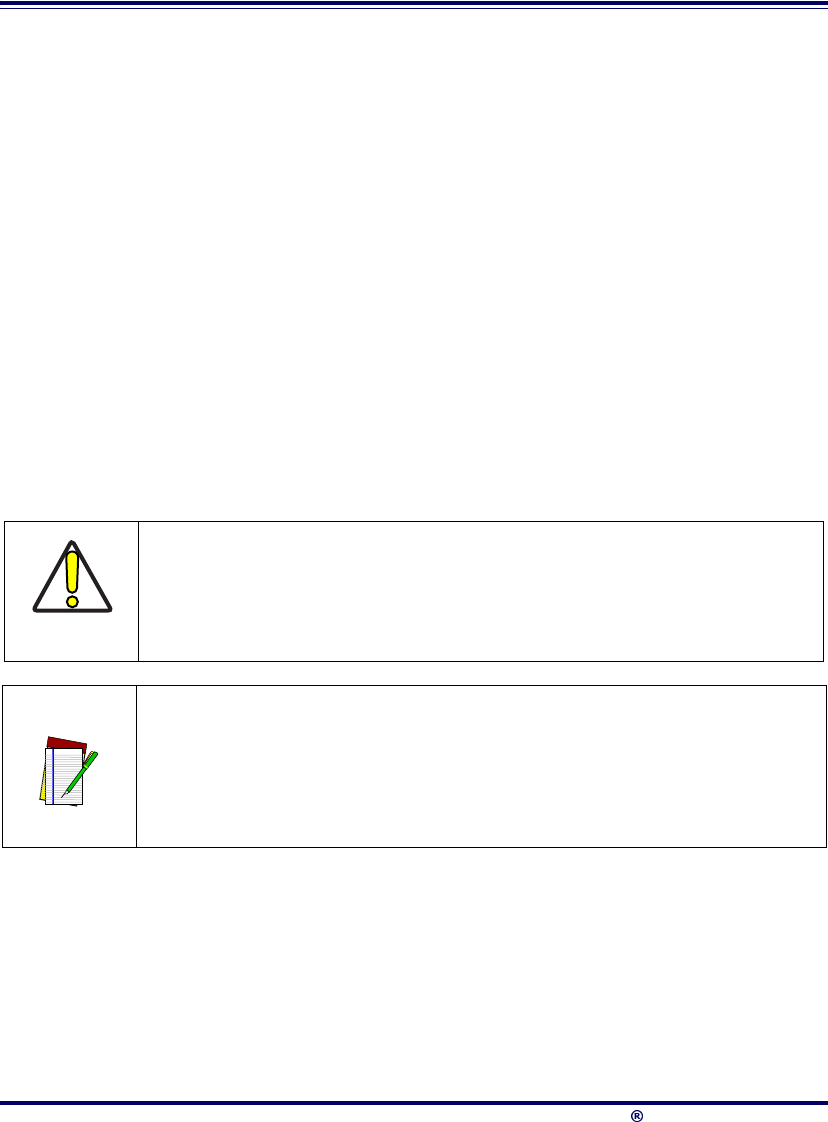
6-2 0DJHOODQ 6FDQQHU
Once you know the scanner’s current settings, you can determine what
changes will be required to allow communication with your host system
and/or optional features you choose to modify to customize your installa-
tion. After recording the modifications needed, finish reading this section,
then turn to the appropriate page and follow the instructions to program
the scanner.
When all scanner features are programmed to your satisfaction, the scan-
ner is ready to be placed into operation.
&XVWRPL]LQJ<RXU6FDQQHU¶V2SHUDWLRQ
Most scanner programming falls within three general categories:
• General Scanner and Scale Features - are features common to all
interface types. Examples include beeper adjustments such as vol-
ume and length, read verification settings, etc.
• Interface Related Features - are the mandatory settings necessary
to allow communication with your host terminal. Examples of
these settings are: RS-232 baud rate and parity.
• Symbology Programming - gives the scanner the capability to
autodiscriminate as few as one, and as many as all available sym-
bologies. For optimal scanner performance enable only those
symbologies required. Additionally the scanner may be pro-
grammed with the standard options available for the various sym-
bologies, such as check digit, minimum label length, fixed and
variable length bar codes, etc.
CAUTION
It is possible, via programming bar codes, to change the interface type (for
example: from RS-232 to IBM Port 17). Great care should be taken to select the
correct interface type, since you can cause damage to the scanner and/or
POS terminal by attempting to change to an incompatible interface. ALWAYS
make interface selections with the host cable DISCONNECTED.
NOTE
Ensure that your planned modifications are compatible with the current inter-
face. For example, baud rate selections are only valid in the RS-232 interface.
The scanner will sound an error tone when scanning programming labels for
features invalid to the current interface group.



